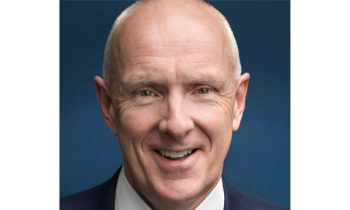
Multiple sclerosis is dependably among the most expensive chronic diseases to treat, but there are ways to reduce the size of the bill.

Multiple sclerosis is dependably among the most expensive chronic diseases to treat, but there are ways to reduce the size of the bill.

Diabetes education has shifted from in-person classes to Zoom meetings.

The pandemic has had dramatically different consequences for the finances of payers and providers.

Because COVID-19 has put the gesture in a different light, healthcare executives are coming up with other ways to greet people.

Many providers are asking patients to wait in their cars. In the future, the waiting room could be divided into small, pod-like rooms.

Practice Fusion case spotlights how technology can be corrupted by commercial interests.

Patients and their oncologists are weighing the pros and cons of delaying treatment. Once the outbreak subsides, how might the practice of oncology change?

Medical and dental care in the United States are like estranged colleagues: nominally on the same team but rarely, if ever, in touch with each other. Some value-based payment arrangements may start to mend the rift, which could both improve overall health and reduce healthcare costs.

Clinicians at UMass Memorial Health Care recommend strategies to better motivate team members, transform care delivery and save lives.

How healthcare executives can manage employees who are working from home.

This was announced in February as the country's first value-based contract between a payer and a dental group practice.

How two hospitals and two insurers are working to turn the tide of the opioid epidemic.

A look at Shelbourn Stevens, president and COO at Novant Health Brunswick Medical Center and his career in healthcare.

Casey Ross, national technology correspondent for STAT, explains during a February 13 webinar, the benefits of AI in healthcare and how it must demonstrably improve outcomes for patients.

Top thought leaders share their favorite non-business reads.

How cancer patients can better organize around their cancer care plans in a more redesigned system.

Here are the top life skills health executives wish they would have been taught in school.

Leadership skills honed in midst of disaster.

Finding solutions to deliver better outcomes for patients.

One key opinion leader calls on healthcare to ensure access to gene therapies.

Expert shares the skills healthcare executives need for successful negotiation.

Payers grapple with expensive treatment payment options.

An interview with the founder and president of ICER.

An interview with vice president of pharmaceutical trade relations for Accredo Rob Osborne.

How payers and health systems are using wearables to monitor patient health and encourage healthy behaviors.

Customized survivorship plans specific to the cancer the patient endured and the treatment they received are essential.

Top oncology experts share how they deliver these therapies to patients in need.

After his mother’s journey with breast cancer, Scott Rissmiller discovered the deep desire to make an impact in others’ lives as a physician-leader.

Elodia Mercier, a 34-year nursing veteran, sets the tone for the way patients should be treated.

From diabetes to pneumonia, how hospitals are eliminating waste and creating healthier patients.

Published: May 21st 2021 | Updated:

Published: August 24th 2020 | Updated:

Published: September 17th 2020 | Updated:

Published: April 25th 2018 | Updated:

Published: April 25th 2018 | Updated:

Published: April 25th 2018 | Updated: